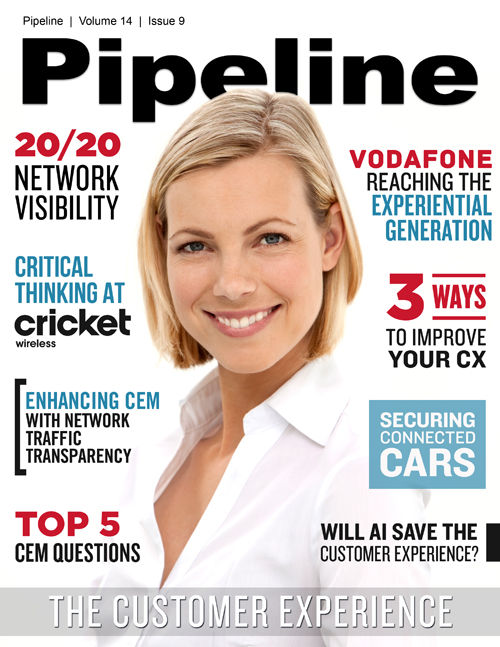Reaching the Experiential Generation: What You Need to Know
Millennials pay close consideration to the overall interaction and solutions that are provided to them in every customer experience. Customers who experience latency or poor user interface experiences seek solutions elsewhere. For example, a recent 2017 Google study found that 53 percent of site visits are abandoned if a mobile website takes more than three seconds to load. With technology consistently generating faster, simpler and better experiences, customers today have a lower threshold for patience than ever before. Enabling technology with powerful backend network infrastructure to get us closer to a Gigabit Society will allow us to almost instantly meet these needs and create powerful, positive customer experiences.
Consistency Across Every Channel
Millennials grew up in a omni-channel world. As teenagers, communication was available to them through a variety of methods including email, instant messaging, mobile and fixed phones. Today’s millennial consumers not only expect businesses to offer multi-channel experiences, they also demand consistency across these channels. Google found that while 63 percent of people expect brands to deliver a consistent experience every time they interact with them, only 42 percent believe brands actually do. That gap represents a significant gulf in expectations versus experience.
There is an expectation today that millennials should be able to consistently reach brands through an assortment of channels at any time. And often when businesses fall short of meeting these needs, it’s usually because their digital capabilities are not up to par. Cloud-based solutions can help centralize call, text, video and email, and streamline the customer service experience while also creating a baseline of consistency across channels. Businesses that adopt cloud-based solutions often find that they help drive successful and efficient communication, which results in simplified and gratifying brand experiences.
Experiences (In and Out of the Office) Will Attract and Retain Talent
Mobile and wireless innovations have blurred the lines that once firmly separated work and personal time. With access to information at all times, millennials are working when and where they want to. Today’s generation of connected employees expects access to workplace data and technology anywhere, anytime and wants the freedom to work remotely. This connectivity should continue to be a priority in today’s workplace.
Remote working policies often are met with resistance. Such policies struggle with the stigma that without an office, productivity lags. However, this assumption couldn’t be more wrong. Vodafone’s Flexible: Friend or Foe study found that 83 percent of companies with flexible working policies have seen productivity improve. Remote work policies provide the flexibility to better enjoy life experiences without compromising productivity, which is why they are becoming commonplace. Companies that are unable to offer these policies risk encountering difficulty in recruiting and retaining talent.
Such a pivotal change reaches far beyond the HR department. Once flexible work policies are in place, employees will need access to the right tools to work in and out of the office seamlessly. Implementing IT infrastructures powered by secure, high-capacity connections will serve as the backbone for new digital technologies.
Companies will also need to ensure data is protected across the enterprise. With an employee base connecting from different locations on a variety of devices, it is essential that data is kept secure across all channels. Awareness of potential vulnerabilities and consistently testing and vetting of new technologies before deployment will keep systems agile and able to adapt to threats as they arise.
Simply put, millennials are disrupting the way we interact with our world. They are looking to technology to create faster, simpler ways of carrying out our daily lives. This ‘experience generation’ views the world and the businesses within it in a new way and that cannot be overlooked. Businesses need to adapt to a consumer base that values experience more than any generation that has come before them, or they will fail to not only keep customers but also the next generation of workers. To begin to build experiences to meet these expectations, businesses need to start at the fundamental level, their network structures.



















